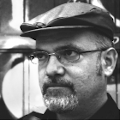Abenjaldún, el precursor
El otro día, en una reunión madrileña de escépticos, me pusieron sobre la pista de un tal Abenjaldún . Lo presentaron, poco más o menos, como el primer historiador moderno. Nótese que era tunecino de ascendencia sevillana, musulmán y vivió en el siglo XIV.
Los economistas también lo consideran como de su gremio.
Hojeando su opera magna, Introducción a la historia universal, he encontrado dos párrafos muy aprovechables. Hablando de la astrología, dice que (con mi subrayado):
The ancient (astrologers) were of the opinion that the knowledge of astral powers and influence is acquired through experience. It (thus) is something that all (human) lives combined would not be able to achieve, because experience is obtained through numerous repetitions which make the obtainment of (empirical) knowledge or conjectures possible. Astral revolutions may be very long. Greatly extended periods of time are required for their repetition. Even (all) the lives in the world (combined) would be too short for (observing) them.
Y sobre las exageraciones numéricas de los historiadores que lo precedieron, que:
For example, al-Mas’udi and many other historians report that Moses counted the army of the Israelites in the desert. He had all those able to carry arms, especially those twenty years and older, pass muster. There turned out to be 600,000 or more. In this connection, (al-Mas’udi) forgets to take into consideration whether Egypt and Syria could possibly have held such a number of soldiers. Every realm may have as large a militia as it can hold and support, but no more. This fact is attested by well-known customs and familiar conditions. Moreover, an army of this size cannot march or fight as a unit. The whole available territory would be too small for it. If it were in battle formation, it would extend two, three, or more times beyond the field of vision. How, then, could two such parties fight with each other, or one battle formation gain the upper hand when one flank does not know what the other flank is doing! The situation at the present day testifies to the correctness of this statement. The past resembles the future more than one (drop of) water another.
¿De qué más campos piensan, pues, mis lectores que fue también Abenjaldún precursor?

